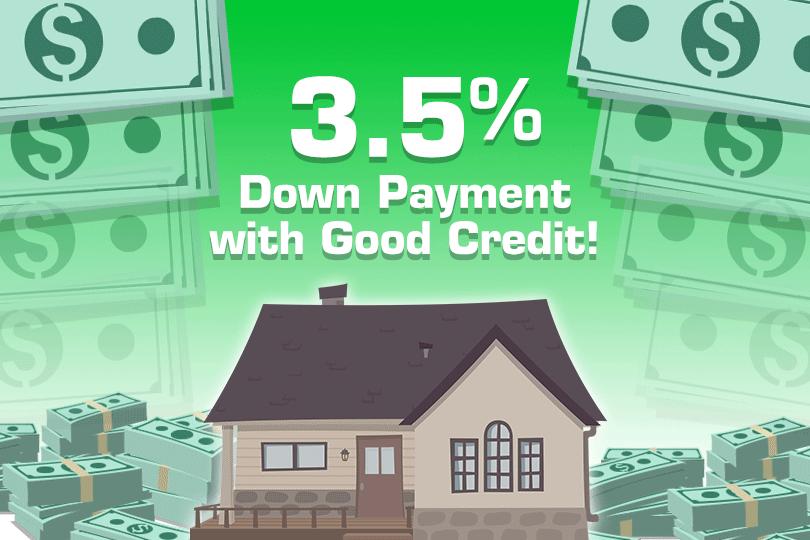What to Know About Down Payments
December 23, 2022
While down payments are one of the biggest obstacles for many in the mortgage process, it helps to understand the ins and outs of why they play such a big role.
Why Do Down Payments Matter?
Down payments go a long way in giving a lender peace of mind when loaning you a sizeable chunk of money for a home purchase. By putting money down on a home, you are assuring a lender that you intend to follow through on the loan to the best of your ability.
Additionally, the amount of money you are able to put down does not affect the interest rate you get from a lender, but it does play a part in how much you pay in interest over the life of the loan. That essentially means that the less you borrow, the less interest you’re paying on it. If your home costs $300,000, and you pay $40,000 down, you would be paying interest on $260,000. Whereas if you put only $20,000 down, you would be paying the same interest rate on a larger amount, making it amount to larger interest payments in total.
Down Payment Requirements
When shopping for a mortgage, the down payment requirements play a big role in your decision, so it helps to know what the conditions are for the different types of home loans.
For most conventional loans, borrowers must pay 20% of the purchase price. Since many first-time homebuyers find it difficult to afford such a large, upfront payment, conventional lenders tack on a monthly Private Mortgage Premium until the buyer is able to pay off 20% of the purchase price.
Since FHA loans are backed by the government, they have a lower down payment requirement of 3.5% of the purchase price. It is important to keep in mind that though the FHA has set this low limit, FHA-approved lenders can place “overlays” and place more stipulations.
Down Payment Assistance
While all this may seem daunting, keep in mind that there is a way to make saving easier. As a borrower, you should know that down payment assistance is available in three forms:
Down Payment Grants: State and municipal agencies and housing authorities have many programs for first-time and repeat homebuyers that can be put towards paying mortgage expenses like down payments and closing costs, without any repayment stipulations.
Second Mortgages: Some assistance programs are offered as a second mortgage with low- or zero-interest rates that need to be paid when the home is paid off, sold, or refinanced. Some loans are completely forgiven after a certain period of time.
MCC: A Mortgage Credit Certificate (MCC) is a tax credit issued by state or local government that allows a taxpayer to claim some portion of the mortgage interest paid. While this is not a tax deduction, it does provide a dollar-for-dollar tax credit to homebuyers for the interest paid during a given tax year.
Keep in mind that all these assistance programs come with their own eligibility criteria, and may be awarded to applicants based on income level, credit scores, occupation, etc.
------------------------------
RELATED VIDEOS:
You're Almost There When You Get Your Loan Approval
Learn About the Mortgage Insurance Premium (MIP)
Pre-approval Starts the Mortgage Process

FHA Loan Articles
March 25, 2025What does it take to sell a house purchased with an FHA mortgage? Are there special rules, restricrtions, or added considerations? We examine some key questions and their answers to FHA real estate sales issues.
March 24, 2025If you are selling a home, you may need to negotiate with buyers to fund their purchases with an FHA mortgage. What do you, as a seller, need to know about FHA mortgages and how they may differ from conventional loans? We examine some common issues.
March 24, 2025How much do you really know about how FHA home loan interest rates are set and what factors influence them before your lender makes you an offer? We explore some key points about FHA loan rates, FICO scores, and debt ratios.
March 11, 2025Adding a co-borrower to your FHA is a way to offset fears that you won't qualify for the mortgage on your own. An FHA loan co-borrower with a more substantial financial profile may offset the primary borrower's weaknesses, demonstrating a reduced risk to the lender. But for an FHA loan, don't assume that one borrower with good credit scores can offset one with non-qualifying scores. We ask 20 questions about co-borrowing to help you better plan for your FHA loan.
March 10, 2025Even if you aren’t considering your home loan options right this second, it’s smart to know your options if you decide to pursue a new home later. To that end, using a mortgage calculator is a smart choice for setting some basic budgeting parameters as you plan your path toward home ownership. A mortgage calculator helps you plan for future financial scenarios, such as buying new or refinancing a current home.







